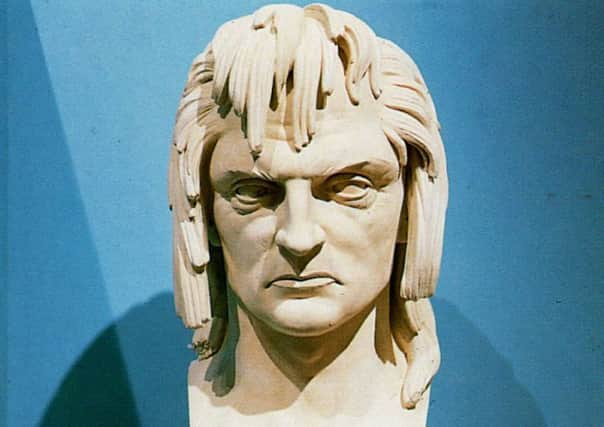William Wallace '“ the nation's favourite son


I was thinking about the problem this week because tomorrow, July 22, is the anniversary of the famous battle of Falkirk in 1298 when the army of William Wallace suffered a terrible defeat at the hands of Edward I and his deadly archers.
Every poll ever conducted in Scotland places Wallace as the nation’s most famous son and statues, books galore and even a blockbuster movie confirm our centuries old love affair with the great man.
Advertisement
Hide AdAdvertisement
Hide AdThe truth is we really know precious little about him and often what we think we know is based on flimsy evidence or on myths which have grown over the years.
We have a few bits and bobs compiled by ‘historians’ many decades after the event plus some contemporary chronicles written by the supporters or enemies of Scotland which are biased and of limited value.
And then there is Blind Harry! Sometimes called Henry the Minstrel, Harry has left us a detailed account entitled “The Actes and Deidis of the Illustre and Vallyeant Campioun Schir William Wallace”.
This lengthy poem, which was written around 1477 nearly 200 years after the Wars of Independence, provides us with most of what we know.
Advertisement
Hide AdAdvertisement
Hide AdHarry was probably a court bard to King James III with the poem given its first airing at Linlithgow Palace. It was a period when pro and anti English factions were struggling for control and Harry, who was clearly in the anti camp, was keen to remind them all of their heroic past.
He claims to have compiled his account from a mini biography written by Wallace’s chaplain John Blair though the original has not survived.
He may also have had other fragments like ballads and songs handed down from father to son and we know that he was quite happy to fill in the missing bits by making it up as he went along.
Scholars who have examined Harry’s account think he may have come from our part of the world because he does provide quite accurate geographical information but that is just another educated guess.
Advertisement
Hide AdAdvertisement
Hide AdIt is Harry who tells us that William’s uncle was a priest in the chapel of Dunipace and that William spent some of his childhood there learning among other things a little Latin rhyme that said “Freedom is best; never live in slavery my son”.
He also tells us that the same uncle was later rescued by Wallace from Airth Castle which was burned down in the process.
Harry also has a great deal to say about the battle of Falkirk including the moving account of Wallace carrying Sir John de Graeme to his tomb and giving a long speech at the graveside and this at the time when Wallace was no doubt high tailing it as far from Falkirk as possible.
He also tells us that Sir John Stewart who is also buried in our churchyard fell out with Wallace during the battle and withdrew his troops from the leader’s command with disastrous effects.
Advertisement
Hide AdAdvertisement
Hide AdBlind Harry may not have given us an accurate account but his version has helped create the enduring legend of Wallace with its power to shape our thoughts and actions today.
As Elspeth King said in her 1998 edition of Harry’s Wallace “Forensic fixations about ‘the facts’ should be laid aside by the listener or reader, as the author is trying to impart far greater truths.”
It is the greater truths we remember this week.